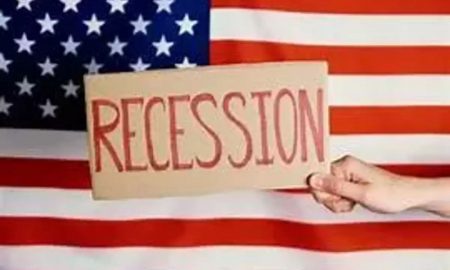
Are You A Retiree? This Is What The Fed Interest Rate Cut Means For You

An interest rate cut from the Federal Reserve might be a piece of good news for borrowers, but several retirees are in a fix right now. For the very first time in more than 10 years, the U.S. central bank has brought around a reduction in the borrowing costs, and it’s bound to take a toll on individuals who are not working anymore, especially those who were expecting a good return on their investments. When interest rates are on the decline, yields on savings accounts, certificates of deposits, and fixed annuities take a hit. Below are a few ways on how a rate cut affects retirees and how they should respond.
Interest Rate Cuts Will Deal A Blow To The Fixed Annuities Rate
 What’s an annuity? An annuity happens to be that periodic payment that you are likely to receive in lieu of the initial sum of money that you deposit. Of course, it has to be a lump sum. This annuity will last you for a lifetime. Annuities are of different types like some are based on equities, while others guarantee you a minimum return. Fixed annuities offer you an interest rate at the very beginning, and the payments remain more or less the same throughout the period of contract. Normally, these annuities protect you from any kind of instability or variation in the interest rates. However, your rates can get affected if you wish to lock them at this moment. Nowadays, interest rates have truly hit rock-bottom. Hence, the latest decision of the Federal Reserve might not have much of an impact.
What’s an annuity? An annuity happens to be that periodic payment that you are likely to receive in lieu of the initial sum of money that you deposit. Of course, it has to be a lump sum. This annuity will last you for a lifetime. Annuities are of different types like some are based on equities, while others guarantee you a minimum return. Fixed annuities offer you an interest rate at the very beginning, and the payments remain more or less the same throughout the period of contract. Normally, these annuities protect you from any kind of instability or variation in the interest rates. However, your rates can get affected if you wish to lock them at this moment. Nowadays, interest rates have truly hit rock-bottom. Hence, the latest decision of the Federal Reserve might not have much of an impact.
Returns On Your Savings Accounts Are Likely To Fall
 High returns on their savings accounts have always put retirees in an advantageous position. But the recent situation suggests that they are more likely to witness a huge reduction in their yields. Ally Bank and Marcus have already preparations to slash yields in case of a decline in the interest rate. A Fed rate cut has a huge impact on certificates of deposits as well. Individuals who have retired from work have opted to stack up a lion’s share of their money in CDS since they have always considered this as one of the safest options. But, at a time when rates are destined to hit an all-time low, the returns might not be as attractive as it used to be. Parking your money in CDs and living your entire life off the interest rate is probably not going to work in such a scenario.
High returns on their savings accounts have always put retirees in an advantageous position. But the recent situation suggests that they are more likely to witness a huge reduction in their yields. Ally Bank and Marcus have already preparations to slash yields in case of a decline in the interest rate. A Fed rate cut has a huge impact on certificates of deposits as well. Individuals who have retired from work have opted to stack up a lion’s share of their money in CDS since they have always considered this as one of the safest options. But, at a time when rates are destined to hit an all-time low, the returns might not be as attractive as it used to be. Parking your money in CDs and living your entire life off the interest rate is probably not going to work in such a scenario.
There Will Be A Decrease In Bond Yields Too
 Aside from CDs, bonds have been considered to be another safe option for the retirees. A Fed rate cut will result in a decline on your returns. Corporate bond prices have reportedly accentuated in the last five months and this implies that yields have diminished. Interestingly, this has been the case long before a Fed rate cut had come into play. There is a risk of an economic slowdown and the Fed is bound to take actions accordingly. For retires, tough times are ahead as an economic reacceleration is not on the cards soon. However, there is a way retirees can fight back in such an unfavorable situation. All they need to do is space out their portfolio with bonds that would mature at different intervals.
Aside from CDs, bonds have been considered to be another safe option for the retirees. A Fed rate cut will result in a decline on your returns. Corporate bond prices have reportedly accentuated in the last five months and this implies that yields have diminished. Interestingly, this has been the case long before a Fed rate cut had come into play. There is a risk of an economic slowdown and the Fed is bound to take actions accordingly. For retires, tough times are ahead as an economic reacceleration is not on the cards soon. However, there is a way retirees can fight back in such an unfavorable situation. All they need to do is space out their portfolio with bonds that would mature at different intervals.
Low Rates Of Interest Will Affect On Long-Term Care Premiums
 Long-term care insurance is highly beneficial for retirees as they proffer a smart and economical method to cover various medical as well as assisted living services. This becomes highly significant as they age and saves them a lot of money. With interest rates coming down so drastically, the long-term care insurance industry has taken a hit. Insurers will be compelled to increase the premium amount which is already quite high at the present moment. With a further decrease in the interest rates, there will be a huge hike in premiums.
Long-term care insurance is highly beneficial for retirees as they proffer a smart and economical method to cover various medical as well as assisted living services. This becomes highly significant as they age and saves them a lot of money. With interest rates coming down so drastically, the long-term care insurance industry has taken a hit. Insurers will be compelled to increase the premium amount which is already quite high at the present moment. With a further decrease in the interest rates, there will be a huge hike in premiums.
A modest cut in the interest rate will not change the scenario. Hence, it becomes imperative to identify the best buying choice that can reap appropriate dividends in the coming times. Waiting for a hike in the interest rates will be a waste of time and nothing else. So, pick up the returns that are coming your way.
More in Big Bank Accounts
-
`
Curious About Travis Kelce’s Net Worth? Here’s the Scoop!
Travis Kelce’s name echoes through NFL stadiums, synonymous with athletic prowess and electrifying plays. But beyond his touchdown celebrations and record-breaking...
June 10, 2024 -
`
Everything You Need to Know About an Assumable Mortgage
What is an Assumable Mortgage? Whether you are a buyer or a seller, understanding the concept of assumable mortgages can open...
June 6, 2024 -
`
Layoff vs. Fired – Understanding the Crucial Differences
When it comes to job loss, understanding the distinction between being layoff vs. fired is crucial. While both situations result in...
May 30, 2024 -
`
When Are Business Taxes Due 2024? Essential Dates and Deadlines
Tax deadlines can be daunting, but fear not! Let’s break down everything you need to know to stay on top of...
May 22, 2024 -
`
How Much Does Jeff Bezos Make Per Hour? It’s More Than You Think!
Jeff Bezos, a name synonymous with innovation and wealth, stands as one of the world’s richest individuals. While Bernard Arnault and...
May 16, 2024 -
`
What is Portfolio Investment Entity (PIE) and How Can it Benefit You?
In the intricate world of finance, individuals seek avenues to optimize their investments while minimizing risks. One such avenue gaining traction...
May 9, 2024 -
`
What is a Bank Statement? Understanding its Definitions, Benefits, and Prerequisites
Ever wondered where your money goes? A bank statement is like a financial report card, giving you a clear picture of...
April 30, 2024 -
`
Branded Content: A Genuine Way to Connect With Your Audience
Have you ever binge-watched a series on Netflix, only to later realize that the beverage everyone’s sipping on is that brand...
April 23, 2024 -
`
What Car Does Jeff Bezos Drive? Find Out Inside His Exclusive $20 Million Collection
Have you ever wondered what car does Jeff Bezos drive? This man’s tastes in vehicles are as expansive as his business...
April 17, 2024















You must be logged in to post a comment Login